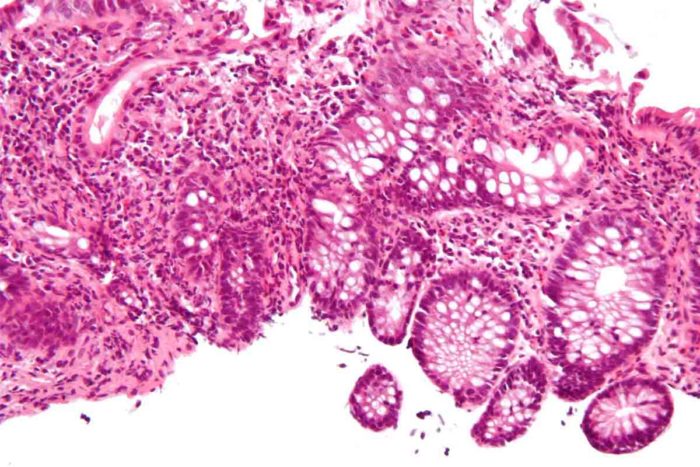Centralized Inflammatory Bowel Disease tissue bank speeds pace of studies
A Washington University tissue bank is helping to identify factors contributing to the outcomes of thousands of inflammatory bowel disease (IBD) patients

Colon tissue from a patient with Crohn’s disease. Image courtesy of Wikimedia Commons.
Approximately one million people in the United States suffer from forms of inflammatory bowel disease (IBD) such as Crohn’s disease and ulcerative colitis. Researchers at Washington University’s Digestive Disease Research Core Center (DDRCC) are working to characterize the symptoms and clinical course of IBD patients and to match these findings with genetic patterns and changes in the intestinal bacterial community.
The DDRCC’s tissue bank provides a much-needed service, both facilitating and accelerating clinical translational studies and potential discoveries about diseases like IBD
“In the past, an investigator might collect specimens for one study, and once the study concluded, the tissue would be destroyed,” explains Rodney Newberry, MD, Washington University gastroenterologist. “By centralizing the tissue- collection process within the DDRCC, we keep the tissue collection going indefinitely. This allows the DDRCC tissue bank to partner with multiple investigators and support several studies, each building upon the other and accelerating the pace of discovery. We also partner with investigators at several centers around the country, giving us greater power to analyze genetic and environmental patterns that might contribute to IBD.”







